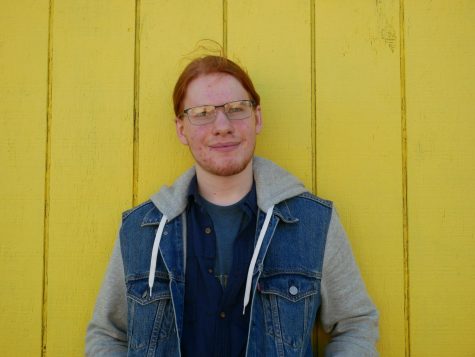Joker: A Discussion
October 20, 2019
Earlier this month, Warner Brothers released their new film “Joker” to the public. While audience reviews of the film have been extremely positive, critical reception has been mixed at best, with the subject matter of the movie sparking a good deal of controversy.
The film follows protagonist Arthur Fleck, a blue collar clown for hire, as he experiences the worst week of his life. The movie strives to show us a man at his absolute lowest, and points a mirror at our own society, forcing the viewer to question how their actions affect the world around them.
When asked about his thoughts on the film, junior Farid Cruz said “I personally enjoyed the movie. I love villain movies in general, so it was no surprise that I would fall in love with this one.” Junior Ritzer Cruz (no relation) said, “I enjoyed the movie as a whole, but it was definitely hard to watch at times,” a point hit upon by film critic Paula Fleri-Soler in her review of the film: “Director Todd Phillips does not let up on the bleakness at any point. It is a film firmly grounded in humanity and ordinary and basic human vulnerabilities and needs in moments of challenge.”
Joker was not so warmly received by all who viewed it however. The sympathetic treatment of the lead character has drawn more than a few eyes, most notably among them, families of the victims of the 2012 Aurora theater shooting. Said shooting occurred back in 2012, when 25 year old James Holmes opened fire into a nearly full midnight showing of the Dark Knight, a superhero movie in which the late Heath Ledger portrays another version of the character Joker. The massacre claimed 12 lives, and left 70 injured.
In the weeks leading up to the release of Joker, families of the Aurora theater victims petitioned Warner brothers to pull support from political candidates who support the NRA, and use the power they wield in service of gun reform legislation. Sandy Phillips lost her 24 year old daughter Jessica Ghawi to the Aurora theater shooting, and had this to say about the film “My worry is that one person who may be out there — and who knows if it is just one — who is on the edge, who is wanting to be a mass shooter, may be encouraged by this movie. And that terrifies me.”
While the issue of creator accountability for the actions of their audience is often hotly debated – the fears expressed by Ms. Phillips extend far beyond the walls of a movie theater, and even into our own community; especially with the increasing frequency of school shootings in America. “It’s nerve wracking and disappointing, because teachers should come to work feeling safe, and students should come to school feeling safe,” said Ms. Kiersten Gregory when asked about the responsibility of teachers in an active shooter scenario. “I’m tired, like most people, watching the news, seeing lives taken by active shooters, and were still at this point where were not doing enough about it.”
Ultimately, divisive as it may be, Joker is supremely useful in these trying times as a topic of discussion. It enables the beginning of difficult conversations about gun violence, mental health, and the variety of other themes presented by the movie. Weather you enjoyed the film or not, it’s near impossible to deny its cultural importance, and as a symbol at least, it’s here to stay.



